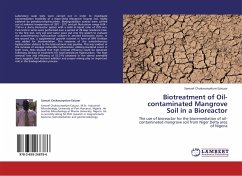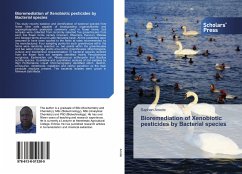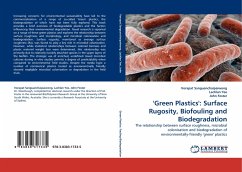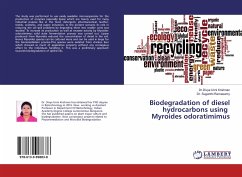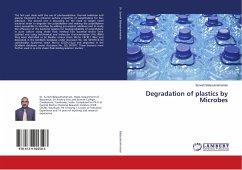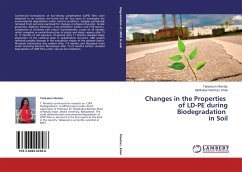
Study of Biodegradation of Xenobiotics by Soil Microorganisms
Biodegradation of textile industry pollutants
Versandkostenfrei!
Versandfertig in 6-10 Tagen
52,99 €
inkl. MwSt.

PAYBACK Punkte
26 °P sammeln!
Thousands of hazardous waste sites have been generated worldwide resulting from the accumulation of xenobiotics in soil and water over the years. Xenobiotic compounds are human made chemicals that are present in the environment at unnaturally high concentrations. Textile industries transform fibres into yarn; convert the yarn into fabrics or related products, and dye and finish these materials at various stages of production. Sanganer is famous for hand block printing which is a traditional form of imparting motifs and colour on fabric, mostly cotton. Synthetic dyes are one of the xenobiotic c...
Thousands of hazardous waste sites have been generated worldwide resulting from the accumulation of xenobiotics in soil and water over the years. Xenobiotic compounds are human made chemicals that are present in the environment at unnaturally high concentrations. Textile industries transform fibres into yarn; convert the yarn into fabrics or related products, and dye and finish these materials at various stages of production. Sanganer is famous for hand block printing which is a traditional form of imparting motifs and colour on fabric, mostly cotton. Synthetic dyes are one of the xenobiotic compounds released in environment from textile wastewater polluting soil and water. Phenols are other pollutants, which are introduced in the environment from the waste stream of several industries such as petroleum refineries, dyes and resin manufacturing units, textile dyeing etc. Bioremediation is a pollution control technology that uses biological systems to catalyze the degradation or transformation of various toxic chemicals to less harmful forms. Studies were conducted on bioremediation of xenobiotics using microbes. The book provides detailed insight into process of bioremediation.







